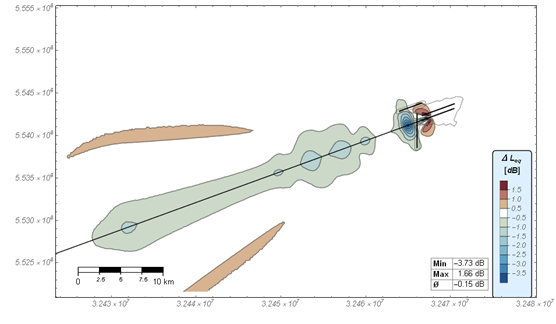Study "Flight History Data as a Basis for Aircraft Noise Calculations" completed and published on behalf of the Federal Environment Agency
March 2022 | Environment
Over a period of three years, GfL investigated the possible use of "flight progress data as a basis for aircraft noise calculations" on behalf of the German Federal Environment Agency (UBA). The project was completed in December 2021. In March 2022, the report is now available in the series UBA TEXTE with the number 22/2022 (https://www.umweltbundesamt.de/publikationen/flugverlaufsdaten-als-grundlage-fuer). Here you can view the 90-minute final presentation via video retrospectively. (CC BY-NC-ND, https://creativecommons.org/licenses/by-nc-nd/4.0/legalcode.de).
The study objective was to examine current aircraft noise calculation methods for possible reference to actual flight history data in the sub-steps of
Examination of monitoring systems and their data (FANOMOS, ADS-B, MLAT, WAM)
Analysis of noise calculation procedures in national and international context
Processing of aircraft movement data
Digression: calculation of aircraft mass and thrust for prediction of movement behavior
Application: Case study for two German commercial airports
As a result, it could be shown that a calculation extended by means of flight progress data is methodically and technically feasible with a controllable effort and thus in principle also suitable for a legal standardization. By replacing typical flight progressions with real recorded flight movement data, results that are even closer to reality can be achieved, as validations show. Manual steps for processing the data sets (DES creation) can be well automated here (pre-processing of recorded traffic data). Of course, the method is dependent on high quality traffic and meteorological data.
GfL is continuously developing the methods for data fusion and filtering of RADAR and ADS-B data to achieve high, kinematically "correct" data quality, supported on the data side by DFS. The evaluation and interpolation of open-access weather data of the DWD is investigated in the context of the further development of ETAS in cooperation with the TU Dresden (Trajectory Management — Professur für Technologie und Logistik des Luftverkehrs — TU Dresden (tu-dresden.de)).
Summary of the results
Full presentation

